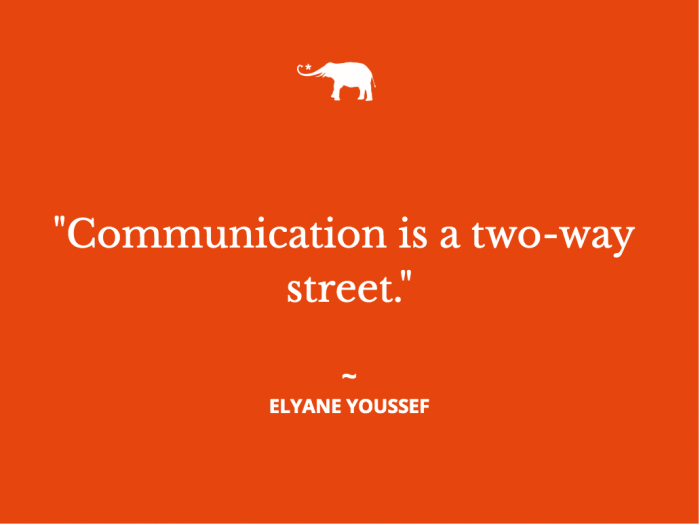We all know that for a relationship to succeed, healthy communication is needed.
But learning how to successfully communicate takes time, patience, and effort. We all have different communication styles, so clashing in that particular area is common and natural in relationships.
Sometimes we might feel our partner is not responsive; other times we might feel they’re not interested in the topic. And maybe we’re the one who zones out every time our partner talks to us.
I believe that communication is a two-way street. That said, if something is faulty in our communication styles, it’s best to look deep within our own behaviors. There could be something wrong either with the method of delivery or the reception—and sometimes it’s both.
Today I will tackle the method of delivery and the ways that could help us feel heard:
1. Understand your partner’s communication style. I communicate differently than my partner. I’m assertive and direct while he tends to be avoidant and indirect. Having this difference is pretty normal in relationships, but we need to learn how to hear each other if we want our communication to prosper. In my situation, I’ve helped my partner to express himself better while he’s helped to create a safe space for me to exhibit my needs. I started feeling heard when he understood that my assertiveness required attention and validation on his end.
2. How are you delivering your message? Before blaming your partner and telling them, “You never listen to me!” ask yourself, “How am I delivering my message? Which tone am I using? Am I being controlling? Is there anger or blame in my tone? Am I talking too much? In the past, I took a significant amount of time to deliver my message to my partner (I’m a writer, can you blame me?), which let him zone out many times (and which made me feel unheard). When I started delivering my message differently, he received it better.
3. Communicating at the right time. Timing is everything. Trust me. Ask yourself, “Is this good or poor timing?” If the time is off, then communication will most probably be terrible. I always make sure to never interrupt my partner (especially when he’s working) only to talk. Unless it is really urgent, I try not to start a conversation at a time when my partner isn’t able to reciprocate it.
4. How attached are you to the outcome? Are you expecting your partner to agree with you? Do you feel strongly about your topic and are seeking a specific response? Personally, I’ve learned that the best practice when it comes to communication (with anyone) is to not seek a particular result—unless we’re looking for support or advice. If I want my partner’s honest opinion, I make sure to ask him for it.
5. Allow your partner to engage. If we want to feel heard, we must make sure to keep our partner engaged. One way to help them contribute to the conversation is to give them the space to respond or ask questions. How we receive their response is also of great importance. They might feel tuned out if we attack, judge, or devaluate them.
~
AUTHOR: ELYANE YOUSSEF
IMAGE: MUHAMMEDSALAH_/INSTAGRAM


That is true. So why is it that, now that Democrats have put their energy into a failed white supremacist candidate that betrayed Americans in Afghanistan, they no longer want to talk politics? They checked out. They got off the two way street of communication, actually they went home and locked their doors tight. You can’t get through to them.
Reply